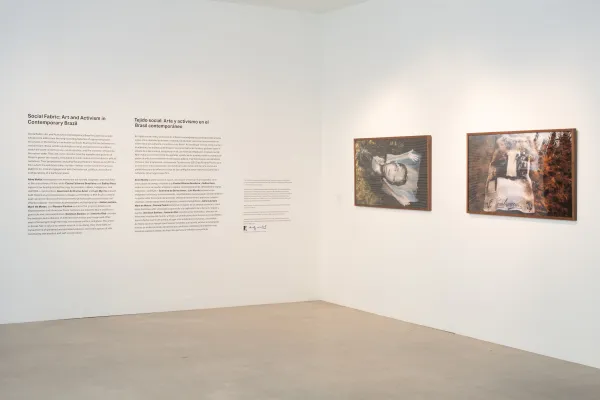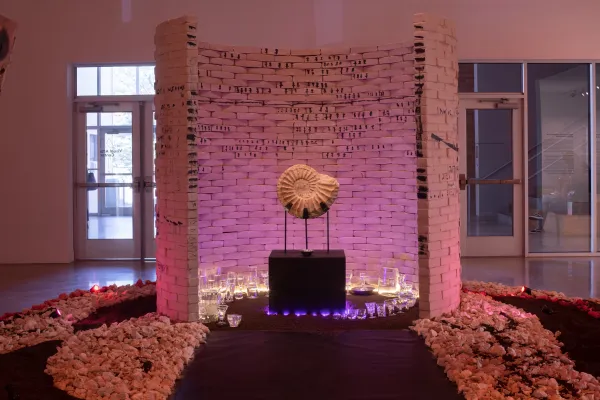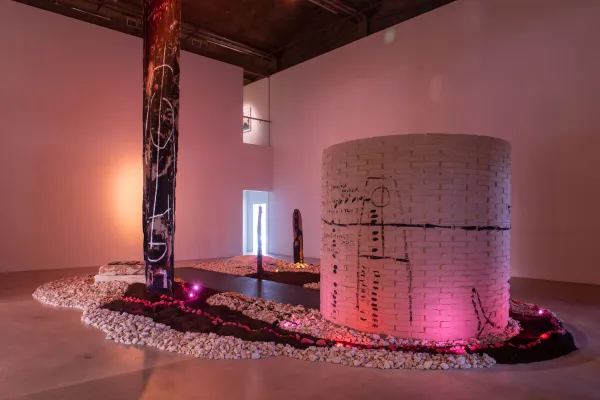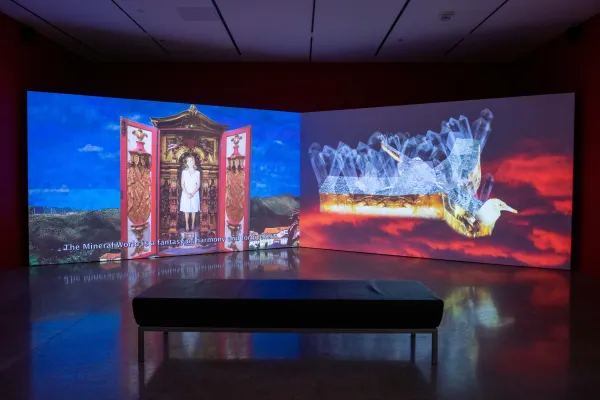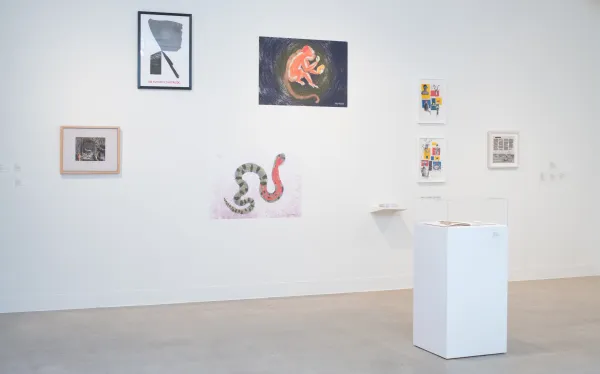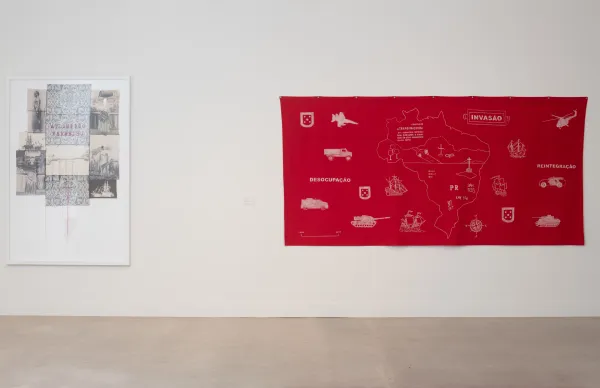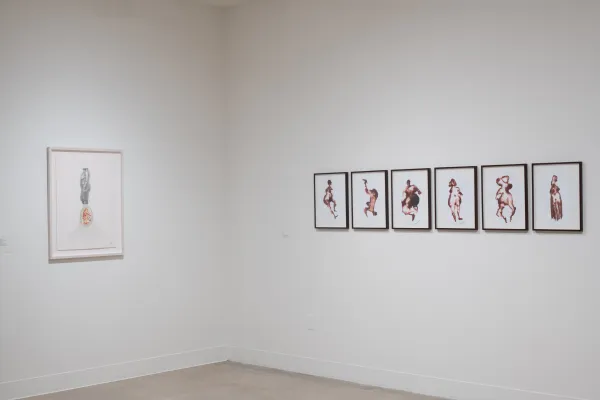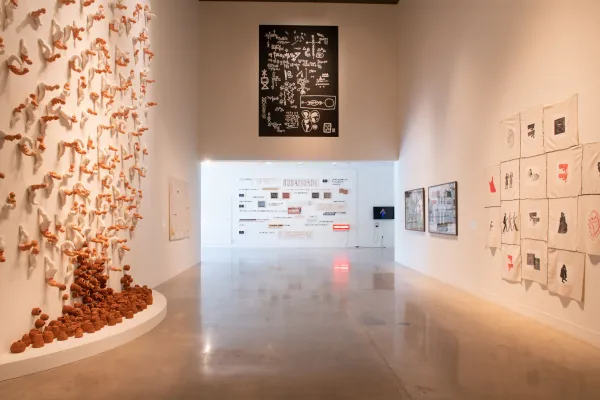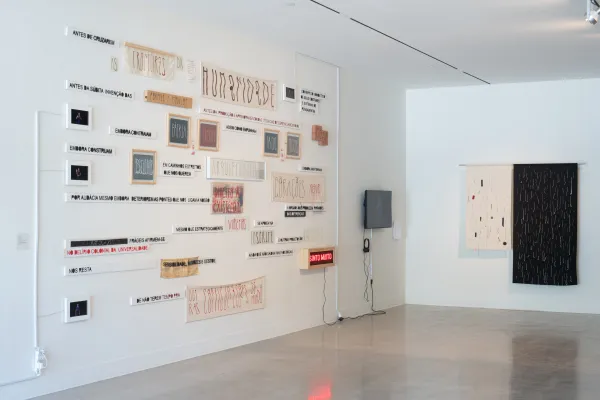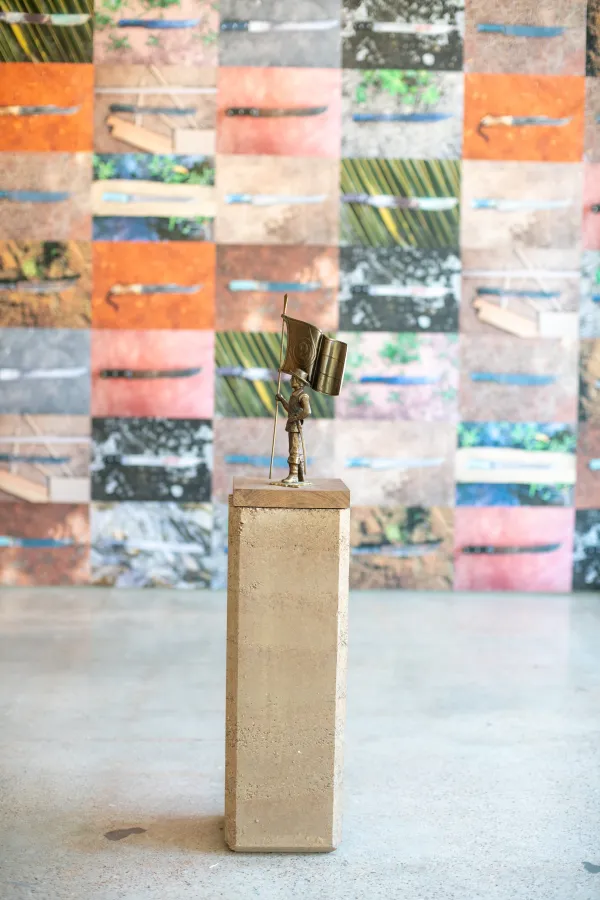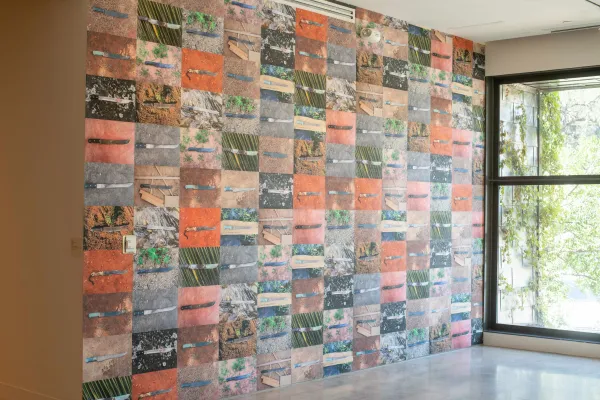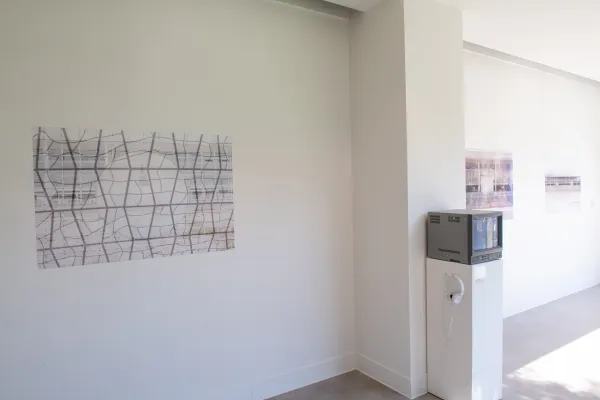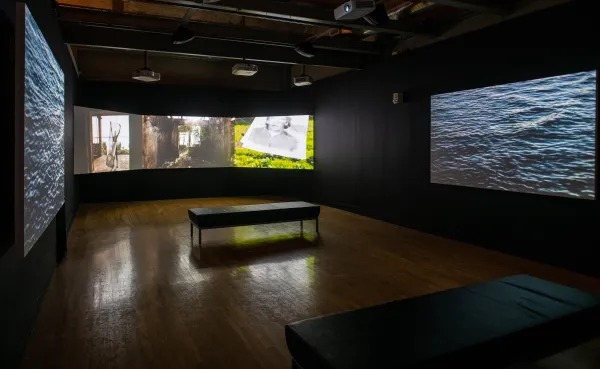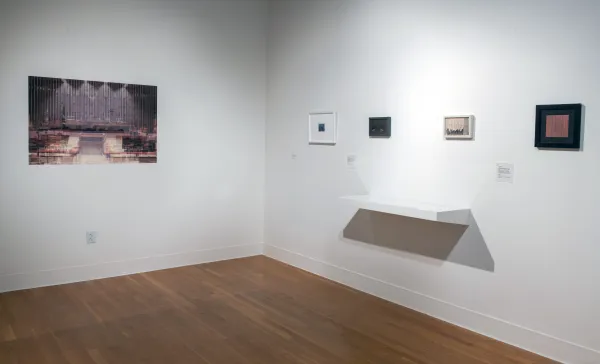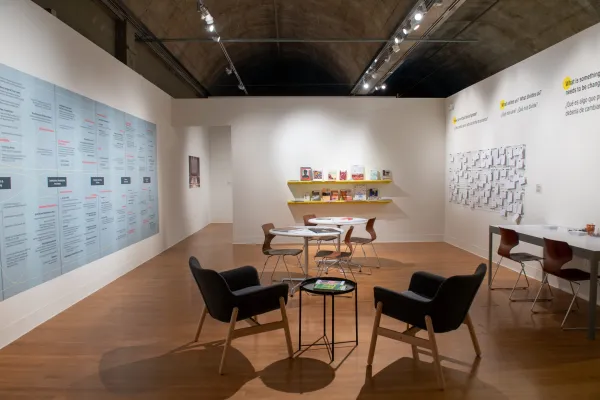Social Fabric: Art and Activism in Contemporary Brazil
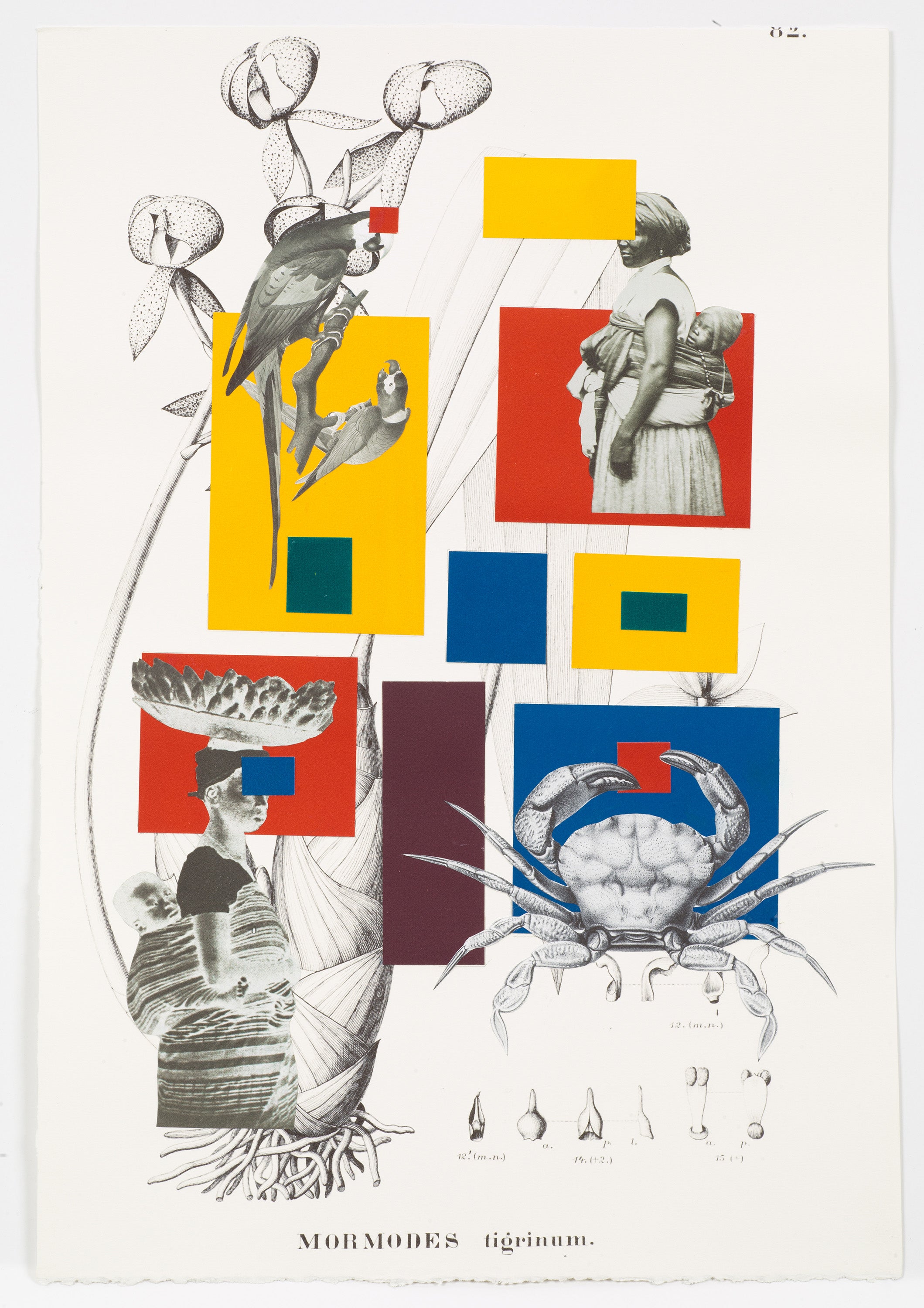
Rosana Paulino, A geometria à brasileira chega ao paraíso tropical, 2018. Digital print, collage, and monotype on paper. 18 7/8 × 13 in. (48 × 33 cm). Courtesy of the artist and Mendes Wood DM, Brussels, New York, and São Paulo.
Social Fabric: Art and Activism in Contemporary Brazil brings together the work of ten artists who reflect upon the long-standing histories of oppressive power structures in the territory now known as Brazil. Blurring the line between art and activism, these artists contribute to both local and global conversations about the state of democracy, racial injustice, and the violence inflicted by the nation-state. In so doing, they ask us to consider how the agendas and policies of those in power are visually articulated in public space and inscribed in official narratives. Their propositions reflect on the function of art as a platform for critical engagement with the historical, political, and cultural configurations of a particular place. Rosana Paulino’s Tecido Social (2010), from which the exhibition takes its title, provides a timely roadmap to approach these ideas while inviting us to imagine anew, stitch by stitch, a more equitable future.
Spanning installation, painting, performance, photography, sculpture, and video, the exhibition unfolds over five galleries within the Visual Arts Center. Aline Motta interrogates how memories are formed, forgotten, and revivified at the crossroads of time, while Castiel Vitorino Brasileiro and Sallisa Rosa explore how healing and justice may be possible through communal efforts, especially in the Black, LGBTQIA+, and Indigenous communities to which they belong. Guerreiro do Divino Amor and Lais Myrrha subvert both historical and contemporary imagery, reminding us that Brazil’s colonial past cannot be divorced from its present. Utilizing both practical tools and affective objects—from maps to family photographs and typography—Jaime Lauriano, Maré de Matos, and Rosana Paulino examine the ongoing legacies of dispossesion and show how these histories are linked to Black and Brown genocide and land exploitation. Denilson Baniwa and Antonio Obá consider the tensions and collisions of different worldviews and foreground other ways of Indigenous and Afro-descendant knowing through the body, non-human entities, and place. By refusing to remain neutral and shedding light on myriad forms of gendered and racialized violence, these artists create spaces of vibrant and vital community and self-construction, where experimentation and joy thrive.
En Tejido social: Arte y activismo en el Brasil contemporáneo, participan diez artistas cuyas obras abordan las formas y estructuras de poder opresivas que persisten en el territorio actualmente conocido como Brasil. Al desdibujar la línea entre el arte y el activismo, las artistas contribuyen a las conversaciones locales y globales sobre el estado de la democracia, la injusticia racial y la violencia infligida por el estado-nación. Nos invitan a examinar cómo las agendas y políticas de quienes están en puestos de poder se articulan visualmente en el espacio público, inscribiéndose en las narrativas oficiales. Sus propuestas—incluyendo Tecido social (2010) de Rosana Paulino que da nombre a esta exposición—profundizan sobre la función del arte como una plataforma para la reflexión crítica de las configuraciones históricas, políticas y culturales de un lugar específico.
Aline Motta cuestiona cómo nacen, se olvidan y reavivan los recuerdos en la encrucijada del tiempo, mientras que Castiel Vitorino Brasileiro y Sallisa Rosa exploran cómo se pueden empezar a reparar las injusticias en las comunidades negras, indígenas y LGBTQIA+. Guerreiro do Divino Amor y Lais Myrrha subvierten las imágenes históricas y contemporáneas, recordándonos que el pasado colonial de Brasil no puede estar divorciado del presente. Utilizando herramientas prácticas y objetos afectivos, desde mapas hasta fotografías y recursos tipográficos, Jaime Lauriano, Maré de Matos y Rosana Paulino examinan el legado de un despojo continuo y cómo estas historias están vinculadas al genocidio y la explotación de la tierra de negros y pardos. Denilson Baniwa y Antonio Obá consideran las tensiones y choques de diferentes visiones del mundo, y llevan a un primer plano otras formas de conocimiento desarrolladas a partir del cuerpo, el lugar y las entidades no humanas. Los artistas de Tejido social se niegan a permanecer neutrales y al hacerlo, exhiben innumerables formas de violencia racial y de género que continúan existiendo, pero también nos muestran espacios vitales de desarrollo personal y reflexión comunitaria.
Social Fabric: Art and Activism in Contemporary Brazil is organized by Adele Nelson, Assistant Professor, Art History, UT Austin, and MacKenzie Stevens, Director, Visual Arts Center, with María Emilia Fernández, Assistant Curator.
Major support for this exhibition is provided by The Andy Warhol Foundation for the Visual Arts.

Lead support provided by The Diane & Bruce Halle Foundation, Shannon and Mark Hart, The Jedel Family Foundation, Once Upon a Time…, and Judy and Charles Tate.
Additional support provided by the Center for Latin American Visual Studies (CLAVIS), Deborah Dupré and Richard Rothberg, the Irvin–Loughlin Family Fund, the Marsh Family Foundation, Texas Global, and the VAC Circle.
Publication
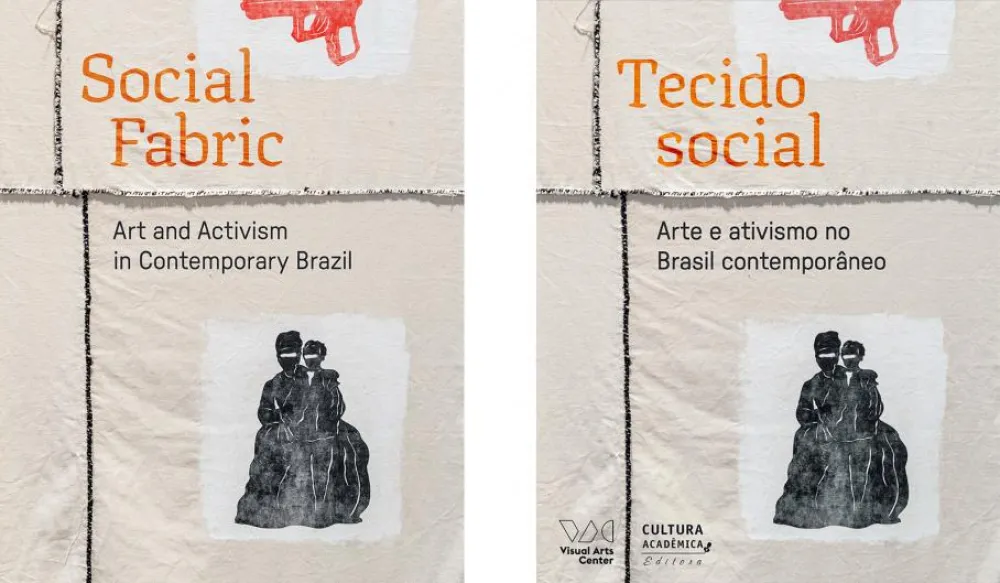
A lavishly illustrated, 168-page exhibition catalogue is available through the University of Texas Press.
The Portuguese translation is available as a free e-book through Cultura Acadêmica Editora and here as a PDF download (10MB).
This publication is made possible by a grant from The Andy Warhol Foundation for the Visual Arts.
Lead support also provided by the Instituto Guimarães Rosa of the Ministry of Foreign Affairs of Brazil through the Consulate General of Brazil in Houston; Mendes Wood DM, São Paulo, Brussels, New York; and Nara Roesler, New York, Rio de Janeiro, and São Paulo.
Additional support provided by Allison and David Ayers and the Center for Latin American Visual Studies (CLAVIS); the Center for Women’s and Gender Studies; the Jackson School of Geosciences; the LLILAS Brazil Center; the Meredith and Cornelia Long Chair in Art and Art History; the Office of the Dean, College of Fine Arts; and the Office of the Vice President for Research, Scholarship, and Creative Endeavors at the University of Texas at Austin.

Explore
Bibliography PDF
Extended Labels PDF
Sociogram
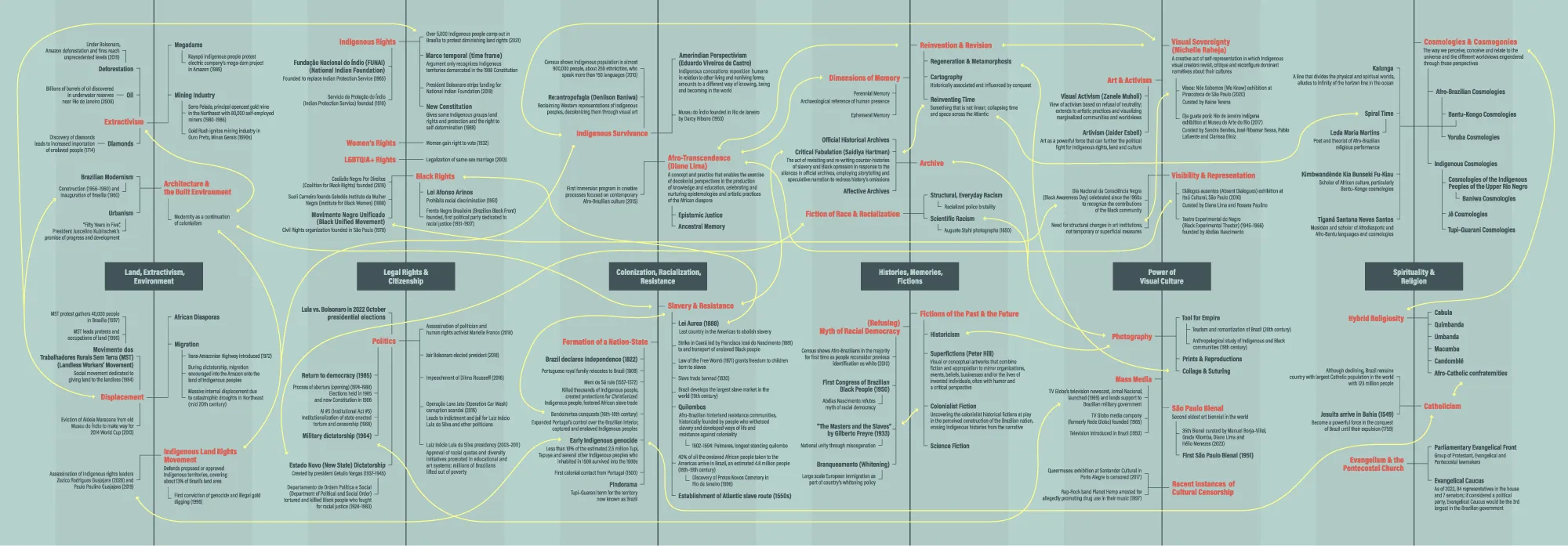
Inspired by the title of Rosana Paulino’s work Tecido social (2010) and the exhibition, this sociogram presents a conceptual map that intertwines moments, people, and geographies of Brazil. It is a tapestry of ideas rather than a timeline, intended to contextualize themes prevalent throughout the exhibition. In conceiving of alternative histories, it is important to consider that the modern, Western understanding of time is not neutral or apolitical. This particular display of ideas and events invites one to reinterpret temporality, understanding that traditional history has carefully erased the realities and cosmologies of contemporary Black and Indigenous communities. The sociogram does not pretend to be all-encompassing; it is catalyzed by the artworks exhibited in Social Fabric and it aims to weave temporalities, geographies, and theoretical concepts in a non-linear manner.
The sociogram was created by Catalina Cherñavvsky Sequeira and María Emilia Fernández with assistance provided by Hunter Thomas. It is the culmination of the research undertaken in graduate seminars led by Adele Nelson and the following students: Chasitie Brown, Laurel Brown, Martha Scott Burton, Sara Carrillo, Eva Caston, Thiago Ferreira, Devon Gerstenhaber, Jana La Brasca, Izzy Lee, Darren Longman, Alexandra Mendez, Victoria McCausland, Sean McPherson, Aja Mujinga Sherrard, Caitlin O’Beirne, Lucy Quezada Yáñez, Karina Salcido, Jennifer Sales, Marina Schneider, Grace Sparapani, Nicole Smythe–Johnson, Alejandra Valdez Carrasco, André Vechi.





